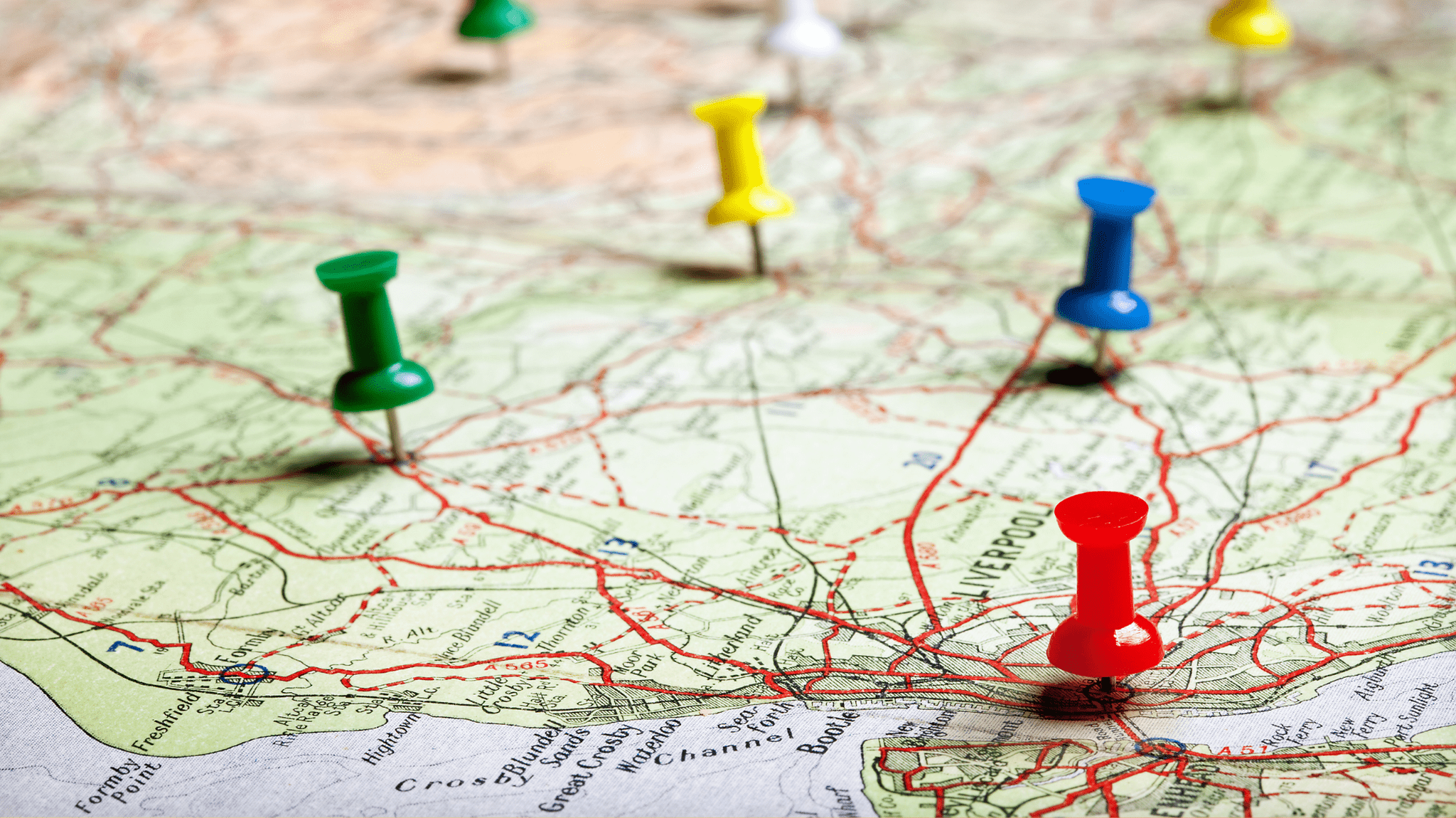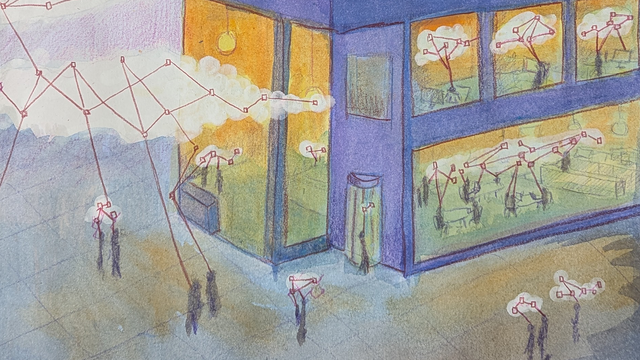Launching Soon: Law and the Humanities Infrastructure Map

LHub and MAHP are launching a new open-access map dedicated to Law and Humanities research collectives across the UK. This post introduces the map’s features, invites beta testers, and provides information as to how interested research collectives can get involved.
The Mapping the Arts and Humanities Project (MAHP), in collaboration with LHub, is excited to announce the upcoming launch of a dedicated Law and the Humanities map – an open-access resource designed to support collaboration, promote visibility, and highlight connections across the UK.
Created as an interactive tool that spotlights research collectives working at the intersection of law and the humanities, the LHub map calls attention to the partnerships shaping the field today and the potential partnerships that could shape the field tomorrow.
Supporting strategy and connection
While law and humanities networks often span centres, journals, associations, and societies (all of which we call “infrastructures”), they can be difficult to trace. The LHub map brings these dispersed initiatives together, improving discoverability, making it easier for communities to connect, share knowledge, and form new relationships.
In doing so, it also supports broader strategic thinking, offering researchers, infrastructure leads, and funders a clearer sense of the national landscape and where future attention or support might be most valuable.
Our data comes from the infrastructures themselves: their public websites, and the information they provide us.
A tool that grows with the community
“We see the map as something dynamic: a living tool that continually evolves through ongoing input from the community,” said Professor Anat Rosenberg, director of LHub. “It’s meant to spark new imaginations, to look beyond familiar and established networks, and to identify emerging areas of interdisciplinary research. In fact, in experimenting with its beta version, we’ve already identified new partners for a forthcoming LHub project. This is the kind of possibilities we hope the map opens up.”
A space to explore, experiment, and reflect
Alongside the map itself, the platform offers a suite of interactive visualisations to help users explore the dataset by theme, tag, and collaboration. These include word clouds, bar charts, and network diagrams.
A beta “entanglement filter” allows users to play with how strongly each infrastructure appears to connect with the Arts and Humanities, based on keywords in its title, description, and tags. Developed as a prompt for exploration, the “entanglement filter” is an invitation to look at the dataset more closely, question assumptions, and notice what might be missing.
All filters and visuals update dynamically, allowing users to drill down into specific areas of interest. Whether you’re tracing disciplinary overlaps or identifying emerging themes, the platform offers multiple ways to reflect on how the field is represented – and how it might grow.
These visualisations provided by the LHub map are intentionally exploratory; they’re meant to be seen as a starting point for dialogue, not deliver definitive answers. We hope they support users in engaging with the data and imagining new ways to represent landscape of Law and the Humanities together.
A landscape larger than expected
“When we first began to think about mapping the Law and Humanities field in the UK, we naturally felt some trepidation,” James Campbell (DPhil candidate at the Centre for Socio-Legal Studies, University of Oxford and LHub Visiting Fellow, the Institute of Advanced Legal Studies, School of Advanced Study, University of London) noted. “Exploring a relatively uncharted area involves a lot of unknowns. But drawing on the Mapping the Arts and Humanities dataset – and actively collaborating with them as well – helped reveal a wealth of information we did not previously have. Indeed, this presented an altogether different view of the discipline, showing it to be greater in scale and diversity than anyone has perhaps realised to date. This now offers all of us opportunities to work together in new and exciting ways.”
Help us test and improve
Ahead of our public launch, we’re inviting beta testers from across the communities: research directors, early career researchers, infrastructure leads, and anyone working at the intersection of Law and the Humanities, to explore the map and share their feedback. Your insights will be instrumental in shaping the tool so that it responds to the field’s shifting needs.
As a beta tester, you’ll have the chance to experiment with the platform before it goes public, take part in short creative prompts and exercises, and connect with fellow collaborators. During out testing sessions, you can play an active role in contributing to the future of the resource and have your say in the map’s development.
Interested in getting involved? Drop us a line at [email protected] – we’d love to hear from you.
Make sure you’re represented!
If you lead or are part of a Law and Humanities infrastructure, this is your invitation to check that your research collective is included prior to the launch (you can do so here) – and if not, to add it, as this will help us make the map as rich and representative as possible.
Something else to keep in mind is that up to this point, the Mapping the Arts and Humanities Project has primarily focused on active infrastructures, but we’re now working on expanding our dataset to include those that have shaped the field in the past. If your infrastructure is no longer operating, but you’d like it to be visible for historical or research purposes, just let us know.
Not sure how to add your entry? Check out our quick guide on how to make your entry count – it walks you through everything you need to know.
A shared resource for the whole community
The resource is free to use and open to all. We hope it becomes a valuable tool for researchers, policymakers, funders, educators, practitioners, and infrastructures leads alike and a starting point for new connections.
Anat Rosenberg is Professor of Law and the Humanities at the Institute of Advanced Legal Studies, University of London, where she leads the Law and the Humanities Hub (LHub). She studies the history of modern capitalism, liberalism, and media, drawing on multidisciplinary methods in Law and the Humanities, including law and visuality, law and materiality, and law and literature; and values collaborative work across law, the arts, and the humanities.
James Campbell is a DPhil candidate at the Centre for Socio-Legal Studies, University of Oxford, and a Visiting Fellow at IALS’ Law and the Humanities Hub. He is Lead Editor of Frontiers of Socio-Legal Studies and has a background in performance studies, legal anthropology, and the sociology of law. His current research explores the significance of physical movement within legal spaces

In Development: Mapping the Humanities and AI
Humanities scholars across the UK are shaping critical thinking and practical action around AI. But the work is scattered across institutions and websites, which is making connections harder to spot. Mapping the Humanities and AI is a map in development that will visualise this activity, highlight networks and gaps, and support collaboration across research, policy, and practice.

Knowledge Diplomacy in Context: British Council, A Legacy of Building Connections
Michael Peak joins us for the "Knowledge Diplomacy in Context" series, which spotlights real-world...
Mapping Openness and AI: Insights from the AI and Openness Workshop for the Arts and Humanities (Part 1)
Sinem Görücü / Silicon Landscapes / Licenced by CC-BY 4.0Following the “AI and Openness” workshop,...

Knowledge Diplomacy in Context
International collaboration strengthens global ties, but the vital infrastructure behind it often...

UK DARIAH Day 2025: Imagining Future Digital Research Infrastructures
As the landscape of arts and humanities research becomes increasingly digitised, the necessity for...
Join our mailing list
Receive blogs as soon as they’re published, along with project updates and event information, plus special access to digital tools to help you make the most of the dataset.
